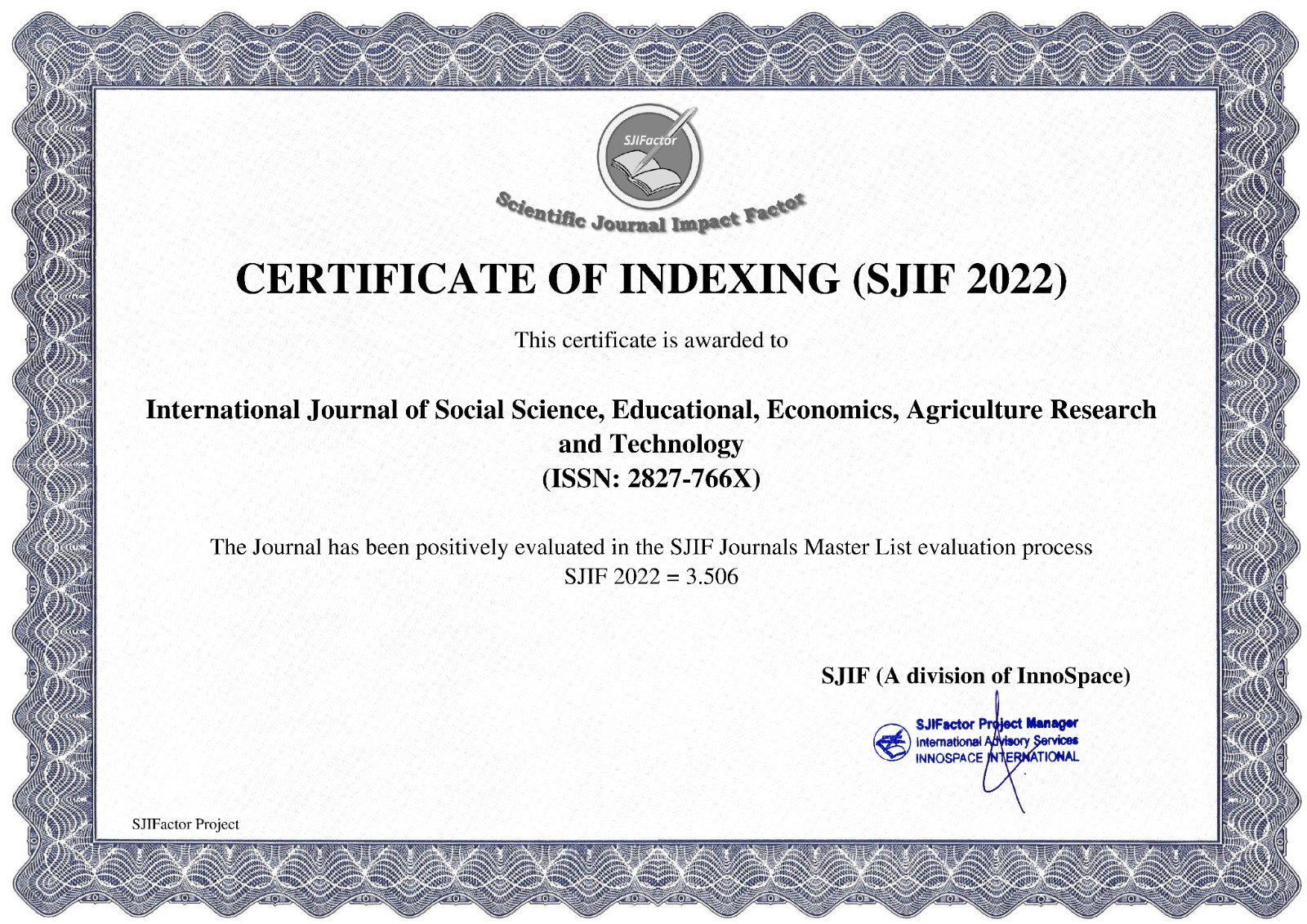BLOCKCHAIN EMPOWERED SUPPLY CHAINMANAGEMENT: “ENHANCING TRANSPARENCY, TRACEABILITY, AND EFFICIENCY”
Main Article Content
Umme Sania
Blockchain technology has emerged as a disruptive force with the potential to revolutionize various industries, and supply chain management is no exception. This paper delves into the application of blockchain technology in supply chain management, focusing on its ability to enhance transparency, traceability, and efficiency. By leveraging blockchain, organizations can track the movement of goods in real-time, verify product authenticity, and automate supply chain processes through smart contracts. Through an in-depth analysis of blockchain-based supply chain solutions, this paper explores how blockchain empowers supply chain management by providing transparent tracking of goods, ensuring immutable record-keeping, and streamlining various supply chain processes. By elucidating the potential of blockchain technology in supply chain management, this paper aims to provide insights into how organizations can harness blockchain to transform their supply chain processes and gain a competitive advantage in today’s dynamic marketplace.
Tapscott, D., &Tapscott, A. (2016). Blockchain revolution: how the technology behind bitcoin is changing money, business, and the world. Penguin.
Iansiti, M., & Lakhani, K. R. (2017). The truth about blockchain. Harvard Business Review, 95(1), 118-127.
Wang, H., Zhang, J., & Xu, L. D. (2019). Blockchain-enabled supply chain finance: Concept, opportunities, and challenges. International Journal of Production Economics, 207, 15-30.
Böhme, R., Christin, N., Edelman, B., & Moore, T. (2015). Bitcoin: Economics, technology, and governance. Journal of Economic Perspectives, 29(2), 213-238.
Nakamoto, S. (2008). Bitcoin: A peer-to-peer electronic cash system. Retrieved from https://bitcoin.org/bitcoin.pdf.
Dubey, R., Gunasekaran, A., Childe, S. J., Papadopoulos, T., & Hazen, B. (2017). Blockchain for supply chain traceability: Business requirements and critical success factors. International Journal of Production Research, 55(18), 1-17.
Hofmann, E., &Rüsch, M. (2017). Industry 4.0 and the current status as well as future prospects on logistics. Computers in Industry, 89, 23-34.
Yli-Huumo, J., Ko, D., Choi, S., Park, S., &Smolander, K. (2016). Where is current research on blockchain technology?—a systematic review. PloS one, 11(10), e0163477.
Zhu, Q., Krikke, H., &Caniëls, M. C. (2018). Blockchain applications and implementation challenges in supply chain: A systematic review. International Journal of Production Research, 57(7), 1593-1617.
Li, Q., Liu, X., Shen, Y., Zhang, S., & Yang, J. (2018). Traceability data management for supply chain transparency in Industry 4.0: A survey. IEEE Access, 6, 3847-3863.
Yue, X., Wang, H., Jin, D., Li, M., & Jiang, W. (2016). Healthcare data gateways: Found healthcare intelligence on blockchain with novel privacy risk control. Journal of Medical Systems, 40(10), 218.
Ramesh, A., Goldstein, M., & Brown, S. A. (2017). Blockchain: Applications and implications for supply chain management. Logistics Research, 10(1), 1-14.
Zheng, Z., Xie, S., Dai, H., Chen, X., & Wang, H. (2017). An overview of blockchain technology: Architecture, consensus, and future trends. In IEEE International Congress on Big Data (BigData Congress) (pp. 557-564). IEEE.
Xu, X., Weber, I., Staples, M., Zhu, L., Bosch, J., Bass, L., ... &Rimba, P. (2017). A taxonomy of blockchain-based systems for architecture design. In Proceedings of the 2017 IEEE International Conference on Software Architecture (ICSA) (pp. 243-252). IEEE.
Tse, E. (2019). Blockchain, supply chain transparency, and corporate social responsibility. Business Horizons, 62(3), 295-305.
https://www.ibm.com/case-studies/walmart-blockchain






















